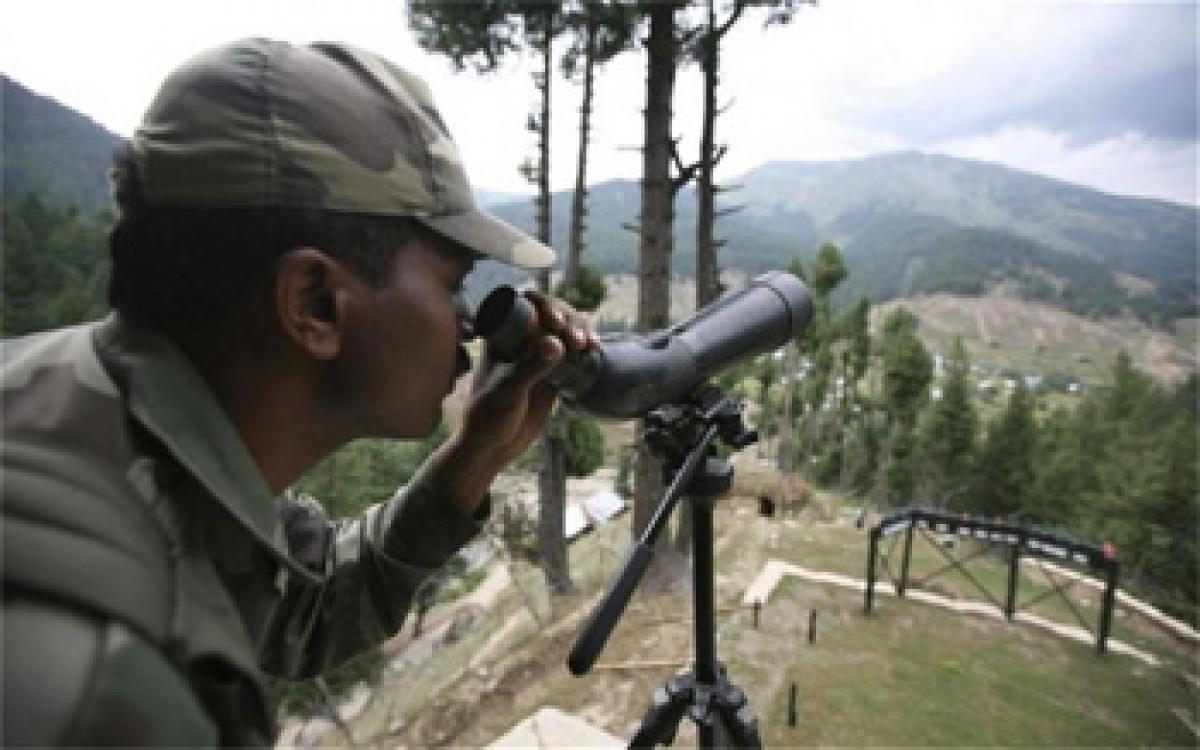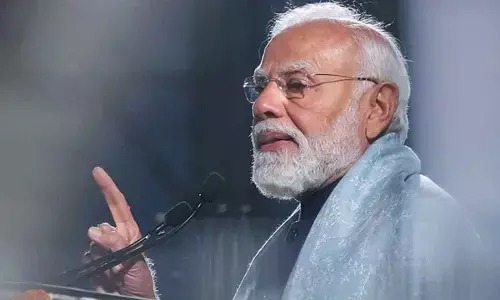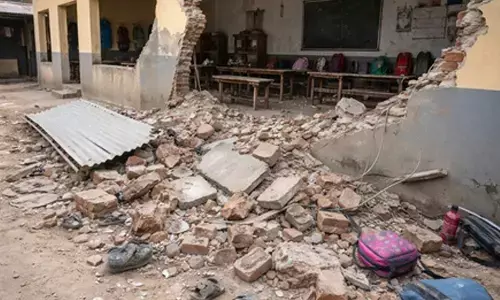Hunger, starvation alienating Kashmiris

Alienation comes in myriad ways and forms. Sometimes it is direct and visible. Many times, it is not. India is a vast country with several problems inherent to it. Words and deeds are not easily understood uniformly in this country. What is good for a particular region or State may not hold good in other States.
The apathy of the Centre in ensuring the installation of a government in the State is so appalling that people have nobody to go to during this crisis. This simmering tension and anger have recently forced people to assemble at the border seeking help from the PoK "relatives" to keep the wolf away from the door.
Thanks to the patient and sagacious approach of our Army officers at the border, the situation did not turn ugly. Just imagine, people in large numbers attempting to cross over the LoC! Does New Delh understand what kind of an international situation it would have had on its hands to deal with?
Alienation comes in myriad ways and forms. Sometimes it is direct and visible. Many times, it is not. India is a vast country with several problems inherent to it. Words and deeds are not easily understood uniformly in this country. What is good for a particular region or State may not hold good in other States.
Everything changes here for every 200 km almost - including your food, lingo and habits. When there is so much of a difference in every conceivable sense, could there be a common plan for everything? More so in a vision document like Budget? Or in the programmes and schemes that are conceived for the entire nation to be uniformly implemented?
Will your MGNREGA work as good in Ladakh region of the country as it does in Madhya Pradesh or Andhra Pradesh? The vision of any national programme may be good. However, when it comes to implementation on a pan-Indian scale, much thought should go into it. When this does not happen there are bound to be problems.
The trouble brewing up in Kashmir over the Food Security Act is a classic example of this. Engrossed as it is in the so-called "mainstream politics,” the country is turning a blind eye towards a major crisis simmering in Kashmir in this regard. Unfortunately, none of the national parties has time and patience to address one of the serious most problems confronting the sensitive State. This neglect could cost the country dearly in the form of further alienation of Kashmir.
The planners should have addressed the problem of food security differently in case of Kashmir. Over the past two decades, unrest in Jammu and Kashmir has affected the valley people, especially the urban poor, either by displacing them from their livelihoods or leaving them without any. Local analysts have pointed out that due to politics, not many below poverty line families are receiving their due under any scheme. Usually, the ruling party associates brazenly corner all the benefits leaving the majority of the poor in a lurch. Their poverty levels are only aggravating and a long-term solution is an imperative.
Secondly, the region's sensitive nature and weather are two crucial features here that make life difficult for those living in the border areas. A visit to the Uri sector or Kishtawar or Doda would reveal that there is little work for the families settled here. A vast population settled all along the border or in the lap of Pir Panjal range closer to the borders experience a harsh winter and there is little work for them.
Most of the villagers in these areas are dependent on the Army for their sustenance. Indian army takes care of their basic needs mostly. This is particularly important during the harsh winters when the areas are under a blanket of snow. Army langers (kitchens) provide food to the villagers. In the higher altitudes, even the livestock is under the care of the army. It is in this backdrop that one should understand the unrest in Kashmir today over the provisions of the Food Security Act.
For lakhs of Indians living in the vast and difficult terrain earning two square meals a day is a herculean task. In addition, they have to store grains for the winter. It is a bare minimum life for Kashmiris here. The problem is simple. Kashmiris require rice to sustain themselves as each one here consumes at least 400 gm a day. Beneficiaries under the scheme are entitled to rice at Rs 3 a kg and wheat at Rs 2 a kg.
However, this is subject to a limit of 5 kg per person per month. Under the present norms, 1.19 crore people of the State fall under the cover of the Food Security Act. Under this Act, there are two categories again – priority and non-priority categories. Only 13.77 lakh people fall under the Antyodaya category. The previous Congress-National Conference coalition government had not preferred to ratify the FSA (this is mandatory.
Every Act has to be ratified by the State Government for implementation in the State here). It was not implemented, perhaps, for the simple reason that the then government did not want to upset the people of the State as they were already entitled to 35 kg of foodgrains per month (each family).
But as soon as it came to power, the PDP-BJP coalition led by the late Mufti Mohhammed Sayeed ratified the NFSA to allow the scheme to be implemented. As soon as the majority of the families came under the NFSA provisions, they started facing shortage of foodgrains as they were now entitled to only 5 kg per head. Kashmiris are basically rice eaters and tend to consume at least 400 gm of rice per head every day. During winter, this goes up a bit due to extreme cold as their body clocks require additional quantities to keep themselves warm.
The 5 kg limit imposed on the people amounts to a huge shortfall of foodgrains which these people could not afford to buy in the open market. This has led to much heartburn in the valley and all those border areas of the State where a vast section of people are dependent on the cheap foodgrains. The situation is so tragic that people have become restless seeking additional quota of foodgrains and have taken to streets and large-scale demonstrations have become a norm here.
The apathy of the Centre in ensuring the installation of a government in the State is so appalling that people have nobody to go to during this crisis. This simmering tension and anger have recently forced people to assemble at the border seeking help from the PoK "relatives" to keep the wolf away from the door. Thanks to the patient and sagacious approach of our Army officers at the border, the situation did not turn ugly. Just imagine, people in large numbers attempting to cross over the LoC! Does New Delh understand what kind of an international situation it would have had on its hands to deal with?
Another issue here is that the nature of valley politics being whatever it is, suspicion plays a major role in moulding people's opinion. And the separatists in the State were gleeful to fish in troubled waters without losing time attributing motives to the Centre including "starving the Kashmiris". Baramulla Traders Federation had sought special permission to import rice from Muzaffarabad via 'Aman Setu' in the Uri sector. National Conference was quick to play safe claiming it did not allow the NFSA to be ratified because it wanted to ensure real food security of at least 35 kg of rice per family.
One could also note that the protests were not intense in the rural areas. Because locals could do with what little rice they produced in addition to what was guaranteed under the NFSA. Those in the border areas and who are the poorest by any means and those BPL families in the urban centres who were really hurt bad erupted in large numbers.
Could India afford this situation in the most sensitive State of Jammu and Kashmir? The shortsighted petty political gambits of both the PDP and the BJP are pushing Kashmir to the brink as never before. This time this is too dangerous a situation. Any further delay in setting the anomaly right in this regard would strengthen the separatist forces further. Is anybody listening?








